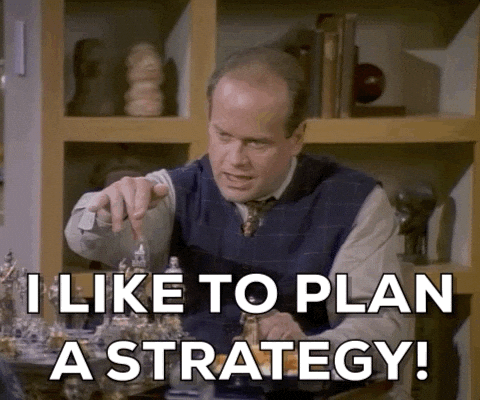50 Ecommerce Quiz Ideas to Instantly Boost Your Sales

Looking for innovative ways to increase sales and customer engagement? Implementing an effective ecommerce quiz strategy could be your answer. In today’s competitive digital marketplace, engaging customers effectively has become more crucial than ever. Consequently, ecommerce quizzes have emerged as powerful tools for increasing conversion rates and building lasting customer relationships. Moreover, these interactive experiences not only capture attention but also provide valuable data for personalizing the shopping journey.
Why Ecommerce Quizzes Work So Well
Ecommerce quizzes transform passive browsers into active participants, creating a two-way conversation between your brand and potential customers. Furthermore, they help shoppers discover products that truly meet their needs while reducing decision fatigue. As a result, customers feel more confident in their purchases, leading to higher satisfaction and fewer returns.
Product Discovery Ecommerce Quiz Ideas
1. 🔍 Find Your Perfect [Product]
This ecommerce quiz guides customers to their ideal product match based on their specific preferences, needs, and pain points. For instance, a skincare brand could help users identify the perfect moisturizer by asking about their skin type, concerns (dryness, aging, acne), environmental factors, and preferred texture. The recommendations feel like they’ve been handpicked by an expert, increasing customer confidence and reducing the overwhelming feeling of too many choices.
2. 🧩 Which [Product] Matches Your Personality?
Connect product characteristics to personality traits, making shopping feel more personal and intuitive. Additionally, this approach creates an emotional connection that goes beyond features and specifications. A home décor store might ask about preferred activities, dream vacation spots, and social habits to recommend a lamp or furniture piece that reflects the customer’s personality. This makes products feel like extensions of the customer’s identity rather than just functional items.
3. 📦 Build Your Perfect [Product] Bundle
Help customers create customized sets based on their responses to questions about their preferences, habits, and needs. Therefore, you’ll increase average order value while providing a personalized shopping experience. A coffee subscription service could ask about brewing methods, flavor preferences, and consumption habits to create a personalized monthly bundle of beans, equipment, and accessories. This ecommerce quiz strategy not only increases initial purchase value but encourages long-term customer commitment.
4. 🎨 Discover Your [Style/Taste/Type]
Identify customer preferences in broader categories before narrowing them down to specific products. Subsequently, this provides a foundation for future personalized recommendations. A fashion retailer might help customers identify whether their style is classic, bohemian, minimalist, or eclectic before suggesting specific clothing items. This approach builds a customer profile that can inform all future interactions, improving relevance across the entire customer journey.
5. 🧠 What’s Your [Product] IQ?
Test customers’ knowledge about a product category while educating them on key features and benefits. Consequently, they’ll feel more informed when making purchasing decisions. A tech retailer could assess customers’ understanding of smartphone features, helping them learn which specifications matter for their usage patterns. This educational interaction builds customer confidence while subtly highlighting your product’s competitive advantages.
6. ❤️ Product Matchmaker
Ask about specific needs, pain points, and preferences to match customers with their perfect product from your catalog. Indeed, this approach mimics the personalized service of an in-store assistant without the pressure. A mattress company might ask about sleep position, temperature preferences, pain issues, and partner disturbance to recommend the ideal mattress. This creates the feeling of a consultative sales approach that builds trust and reduces purchase hesitation.
7. 💎 Hidden Gem Finder
Help customers discover lesser-known but highly-rated products that match their preferences and needs. Above all, this showcases your full catalog rather than just bestsellers, increasing exposure for niche products. A bookstore might ask about reading preferences, and then recommend excellent but overlooked titles rather than just the current bestsellers. This ecommerce quiz approach helps differentiate your store by providing unexpected delight and genuine discovery.
8. 🆕 New Collection Preview
Introduce upcoming products through interactive questions that help customers pre-select items they might like based on their past preferences and current trends. Meanwhile, this builds anticipation for new releases and creates a sense of insider access. A cosmetics brand could use this format to gauge interest in forthcoming products while allowing customers to be first in line for items that match their beauty profile. This creates urgency and exclusivity that drives conversions.
9. 🌞 Seasonal Must-Haves
Guide customers through seasonal product selections based on their lifestyle, location, and preferences. Undoubtedly, this creates urgency while providing personalized recommendations that feel timely and relevant. An outdoor retailer might ask about planned activities, local climate, and personal comfort preferences to suggest seasonal gear essentials. This capitalizes on seasonal transitions to create natural purchase occasions while solving real customer needs.
10. 🎁 Gift Finder
Help shoppers find the perfect present based on recipient characteristics, relationship, occasion, and budget. This reduces the stress of gift-giving while increasing conversion rates during key shopping periods. A jewelry store could ask about the gift recipient’s style, the occasion’s significance, and symbolic meanings to guide shoppers to meaningful pieces. This transforms the often stressful gift shopping experience into a guided journey with a satisfying outcome.

Educational Ecommerce Quiz Ideas
11. ✅ Are You Using [Product] Correctly?
Educate customers on proper product usage while identifying knowledge gaps that might be preventing them from getting full value. Ultimately, this improves customer satisfaction and reduces support inquiries by addressing common misunderstandings. A haircare brand might assess customers’ styling routines to identify improper techniques or missed steps. This provides immediate value while positioning your brand as a helpful expert rather than just a product seller.
12. 📊 What’s Your [Industry/Niche] Knowledge Level?
Assess and improve customer understanding of your product category by testing their familiarity with terminology, processes, and best practices. Afterward, provide resources tailored to their knowledge level to help them become more confident consumers. A wine retailer could test customers on grape varieties, regions, and pairing principles, and then offer learning resources based on their score. This creates an educational journey that deepens customer engagement with your category.
13. 🔍 Myth vs. Fact
Debunk common misconceptions about your products or industry through an engaging true/false format that both entertains and educates. In essence, this positions your brand as a trusted authority while clearing away barriers to purchase caused by misinformation. A supplement company might address myths about ingredients, effectiveness, or usage patterns. This ecommerce quiz format allows you to directly counter objections while establishing factual foundations for purchase decisions.
14. 🏆 Product Features Master
Test and educate customers on the key features of your products, helping highlight selling points they might otherwise overlook or undervalue. Similarly, this helps customers understand the full range of capabilities they’re purchasing. A smart home device retailer could evaluate customers’ awareness of lesser-known features that provide unexpected value. This approach ensures customers appreciate all the benefits your products offer, justifying premium pricing and increasing perceived value.
15. 🧪 Ingredient/Component Decoder
Help customers understand what goes into your products and why each element matters for performance, sustainability, or quality. Therefore, they can make more informed purchasing decisions based on what’s truly important to them. A food or beauty brand might educate customers on ingredient benefits and functions to help them become more discerning shoppers. This builds appreciation for your product formulation while differentiating from competitors.
16. 🌱 Sustainability IQ
Educate customers about the environmental impact of different products and practices, helping them align purchases with their environmental values. As a consequence, eco-conscious consumers can make choices they feel good about while understanding your sustainability initiatives. A fashion brand could assess customers’ knowledge of textile impacts, production processes, and garment lifecycles. This demonstrates your commitment to transparency while appealing to growing consumer interest in sustainable shopping.
17. 🎯 Skill Level Assessment
Determine customers’ expertise with your product category to recommend appropriate items that match their abilities and experience level. In the same way, this ensures they purchase products that will provide the right balance of challenge and success. A musical instrument retailer might assess playing experience, technique familiarity, and music reading ability. This prevents frustrating mismatches between product complexity and customer capability, reducing returns and disappointment.
18. 🛠️ Product Care Knowledge
Test customers on proper maintenance of products they own or are considering to help extend product life and satisfaction. Nevertheless, this helps them get maximum value from their purchases while reducing support issues related to improper care. A leather goods company could evaluate customers’ understanding of cleaning methods, storage practices, and protection techniques. This ecommerce quiz positions ongoing product care as an essential part of ownership while potentially driving sales of care products.
19. 📈 Industry Trends
Keep customers informed about the latest developments in your field while gauging their awareness and interest in emerging directions. Besides providing value, this positions your brand as current and forward-thinking rather than stuck in outdated approaches. A tech accessories brand might assess customers’ familiarity with upcoming connectivity standards, material innovations, or usage trends. This subtly introduces new product categories while establishing your brand as an industry leader.
20. ✨ Benefits Explorer
Help customers understand the full range of advantages your products offer beyond the obvious features, focusing on lifestyle improvements and problem-solving capabilities. Hence, they can appreciate value beyond the surface-level specifications. A fitness equipment company might identify their health goals to reveal how specific equipment features translate to real-life benefits. This shifts focus from technical details to meaningful outcomes, strengthening purchase motivation.

Lifestyle and Preference Ecommerce Quiz Ideas
21. 🛍️ What’s Your Shopping Style?
Identify how customers prefer to shop—whether they’re methodical researchers, intuitive buyers, deal hunters, or luxury seekers—and tailor their experience accordingly. To clarify, this helps streamline their future interactions with your store by aligning with their natural decision-making process. An online clothing retailer might adjust product presentation and filtering options based on identified shopping styles. This ecommerce quiz creates a more comfortable browsing experience that matches each customer’s preferred approach.
22. 🌟 Life Stage Product Finder
Recommend products based on current life circumstances such as moving homes, starting a family, beginning college, or entering retirement. For example, new parents or recent graduates have specific needs your products might address in uniquely relevant ways. A home goods store could suggest different essential packages for various life transitions. This connects your products to significant life moments, creating emotional relevance that transcends mere functionality.
23. 💫 Values-Based Shopping
Match customers with products that align with their personal values and priorities—whether that’s sustainability, supporting local businesses, ethical production, or cutting-edge innovation. Overall, this strengthens the emotional connection to your brand by showing shared commitments. A beauty retailer might help customers find products matching their stance on animal testing, packaging waste, or ingredient sourcing. This demonstrates that you understand what truly matters to customers beyond basic product attributes.
24. ⏰ Daily Routine Enhancer
Identify pain points in customers’ daily activities that your products could solve or improve, helping them envision practical applications for your merchandise. First and foremost, this highlights how your offerings fit naturally into their existing habits and routines. A kitchen gadget company might ask about meal preparation frustrations to suggest time-saving tools. This approach grounds product benefits in everyday reality rather than hypothetical situations.
25. 💰 Budget-Friendly Finder
Help customers discover options within their price range without compromising on the qualities most important to them. Specifically, this addresses price sensitivity while maintaining perceived value and preventing the disappointment of discovering that preferred items are unaffordable. A furniture retailer could help customers prioritize which features matter most within their budget constraints. This transforms price limitations into a focused search for optimal value rather than a frustrating restriction.
26. 🏠 Lifestyle Compatibility
Determine how well certain products would integrate into a customer’s current lifestyle, living situation, and daily patterns. To put it differently, this helps them envision products in their daily context rather than in isolation. A home exercise equipment company might ask about living space, schedule, and household composition to recommend appropriately sized and functioning equipment. This prevents purchases that would create friction in the customer’s existing life circumstances.
27. ✅ Habit Formation
Identify which products might help customers develop positive habits they wish to establish, connecting merchandise to aspirational lifestyle improvements. In particular, this adds motivational value to purely functional products by linking them to meaningful personal goals. A wellness brand could help customers identify which healthy habits would most improve their specific situation. This ecommerce quiz positions products as enablers of positive change rather than mere possessions.
28. 🎉 Occasion-Based Recommendations
Suggest products perfect for specific events or situations customers regularly encounter, from business meetings to family gatherings to travel scenarios. By and large, this creates additional purchase opportunities beyond routine shopping by connecting products to upcoming occasions. A clothing retailer might help customers build perfect outfits for different events on their calendars. This creates natural purchase triggers tied to real-life moment needs.
29. 🖼️ Aesthetic Preference
Determine customers’ style preferences across multiple dimensions—color palettes, design eras, material textures, visual density—to recommend visually cohesive products. In the long run, this ensures purchases align with their taste and existing possessions. A home décor brand could help customers identify whether their aesthetic leans toward minimalist, industrial, bohemian, or traditional. This creates confidence that selected items will integrate harmoniously with the customer’s overall aesthetic.
30. 👃 Sensory Preference
Identify preferences for textures, scents, sounds, or flavors to guide product recommendations that will provide sensory satisfaction beyond visual appeal. To illustrate, fragrance or food retailers could use this approach to match sensory profiles with product characteristics. A candle company might determine whether customers prefer woody, floral, fresh, or gourmand scent families. This acknowledges the multi-sensory nature of product experience, creating more accurate matches.

Engagement and Entertainment Ecommerce Quiz Ideas
31. 🤝 Brand Personality Match
Determine which aspects of your brand personality resonate most with each customer—whether they connect with your playfulness, reliability, innovation, or tradition. Not only does this build brand affinity, but it also informs future marketing approaches tailored to their preferences. A beverage company might identify whether customers align more with the brand’s adventurous or comforting qualities. This ecommerce quiz strengthens emotional connection by highlighting shared values and personality traits.
32. 📜 Product History Trivia
Test knowledge about the heritage and development of your products, sharing interesting origin stories and evolution milestones. On the whole, this builds appreciation for craftsmanship and brand legacy while entertaining customers with engaging facts. A watchmaker might educate customers on historical innovations that led to modern timepieces. This transforms your products from commodities into artifacts with meaningful narratives worthy of collection and conversation.
33. 👤 Customer Type
Help shoppers identify what kind of customer persona they represent within your brand community, whether they’re early adopters, maximalists, classics lovers, or trend followers. In other words, this creates a sense of belonging to your brand community through self-identification with a recognized customer archetype. A sporting goods retailer might help customers discover whether they’re a weekend warrior, dedicated athlete, or comfort seeker. This fosters tribal belonging that strengthens brand loyalty.
34. 🔮 Future Trends Predictor
Ask for opinions on upcoming trends to gauge interest while providing trend forecasts that position your brand as forward-thinking and your customer as in the know. Generally speaking, this generates excitement about future developments while gathering valuable preference data. A technology retailer might evaluate which emerging features customers find most compelling. This creates anticipation for upcoming products while informing your development priorities.
35. 🏭 Behind-the-Scenes Expert
Test knowledge of how your products are made or your business operates, from materials sourcing to craftsmanship techniques to quality control processes. Rather than focusing only on the final product, this builds appreciation for your processes and the people behind them. A brewery might assess customers’ understanding of fermentation methods and ingredient selection. This transforms consumption into connoisseurship by deepening knowledge about production methods.
36. 🌟 Fan Level
Determine how familiar customers are with your brand’s unique offerings, history, and story—from casual newcomers to dedicated enthusiasts. Without a doubt, this rewards loyal customers while educating newcomers about your brand’s distinctive elements. A cosmetics company might test knowledge of signature products, founder history, and brand milestones. This acknowledges customer investment in your brand while creating a path for deeper engagement.
37. 📖 Product Origin Stories
Test and educate on the interesting beginnings of your bestselling products, from initial inspiration to development challenges to breakthrough moments. In this case, storytelling creates emotional connections to merchandise through shared narratives. A furniture designer might share the creative process behind iconic pieces. This ecommerce quiz transforms products from mere objects into meaningful creations with purpose and heritage worthy of investment.
38. 🌈 Community Values
Identify which of your brand values most resonate with individual customers, from environmental commitment to family tradition to technical innovation. This strengthens alignment between customer and brand identity through shared principles. An outdoor equipment company might determine whether customers most value durability, sustainability, or performance. This builds relationship depth beyond transactional interactions through value alignment.
39. 📋 Wishlist Builder
Help customers create a prioritized wishlist based on their preferences, needs, and upcoming occasions, establishing a roadmap for future purchases. Meanwhile, this facilitates future purchases and gift ideas while providing valuable data about desired products. A jewelry retailer might help customers build a collection plan for different occasions and self-purchases. This extends the relationship beyond the immediate transaction into a longer acquisition journey.
40. 💬 Brand Voice Match
Determine which communication style best resonates with each customer—whether conversational, technical, inspirational, or straightforward. That is to say, this informs how to engage with them in future interactions to maximize receptivity and connection. A software company might adjust explanation complexity based on whether customers prefer detailed specifications or simplified benefits. This personalizes communication to match customer preferences for information processing.

Strategic Ecommerce Quiz Ideas
41. ⏱️ Replenishment Reminder
Help customers determine when they should reorder consumable products based on their usage patterns, household size, and application methods. Accordingly, this encourages repeat purchases at appropriate intervals while preventing frustrating product depletion. A pet food company might calculate ideal reorder timing based on pet size, activity level, and feeding habits. This ecommerce quiz transforms one-time purchasers into a subscription or repeat customers through personalized timing recommendations.
42. ⬆️ Upsell Opportunity Finder
Identify which premium features or products would most benefit each customer based on their specific usage patterns, priorities, and pain points. Certainly, this increases average order value without seeming pushy by focusing on genuine customer benefit rather than mere selling. A camera retailer might determine which lens upgrades would most enhance a customer’s specific photography subjects. This justifies premium purchases through a clear connection to customer needs.
43. ➕ Cross-Sell Navigator
Discover complementary products that enhance items customers already own or are considering purchasing, creating natural product pairings. At the same time, this improves product utility while increasing sales through logical additions rather than random suggestions. A hiking gear retailer might recommend appropriate accessories based on specific backpack or boot selections. This creates natural purchase bundles that feel helpful rather than pushy.
44. 👑 Loyalty Tier Advisor
Help customers understand which loyalty program level would best suit their shopping habits and how to maximize benefits at each tier. In contrast to generic program information, this provides personalized guidance that encourages program participation and tier advancement. A hotel chain might help customers calculate their annual stay patterns to determine optimal loyalty program engagement. This ecommerce quiz makes loyalty programs more accessible by personalizing their relevance.
45. 🔄 Subscription Suitability
Determine which subscription options would best serve each customer’s needs based on consumption patterns, budget, and variety preferences. After all, recurring revenue strengthens your business while providing customer convenience through automated replenishment. A meal kit company might help customers identify which subscription frequency and variety level matches their household’s eating habits. This transforms one-time purchasers into long-term subscribers through personalized program matching.
46. ⭐ Review Propensity
Identify which customers are most likely to leave reviews and what might motivate them to share their experiences, from product satisfaction to community contribution. In addition, this helps build social proof for your products by targeting review requests to the most receptive customers. An electronics retailer might identify technically-minded customers who enjoy sharing detailed product analyses. This improves review generation through targeted outreach to the most engaged customers.
47. 🎯 Pain Point Prioritizer
Determine which challenges are most important for customers to solve first among several related issues, creating a natural purchase sequence. To sum up, this helps focus their attention on the most relevant products while establishing a logical upgrade path. A productivity software company might help customers identify their biggest workflow bottlenecks. This creates a clear starting point for customers facing multiple related needs.
48. 💡 Feature Value Assessment
Identify which product features provide the most perceived value to different customers based on their specific use cases and priorities. Due to this insight, you can highlight the most compelling selling points in personalized communications rather than generic feature lists. A smartphone retailer might determine whether camera quality, battery life, or processing speed matters most to each customer. This enables precision messaging that emphasizes the most persuasive features for each individual.
49. 🛡️ Purchase Confidence Builder
Address common hesitations or objections through targeted questions and results that provide reassurance about quality, compatibility, or suitability. Beyond doubt, this overcomes barriers to purchase completion by proactively addressing concerns. A custom furniture company might address concerns about size, durability, or style compatibility. This reduces abandonment by identifying and resolving specific purchase obstacles.
50. 🔄 Customer Feedback Loop
Gather input on product improvements while engaging customers in your development process, creating investment in upcoming offerings. Last but not least, this creates investment in your brand’s future offerings while providing valuable development insights. A software company might ask customers to rank potential new features by usefulness. This makes customers feel valued for their opinions while providing actionable product development guidance.

Implementing Ecommerce Quizzes Effectively
The key to successful ecommerce quizzes lies in their seamless integration into the customer journey. Therefore, consider placing them strategically on landing pages, product category pages, or even in post-purchase emails. Furthermore, ensure the length matches the complexity of the purchase decision – simple products need shorter assessments, while complex purchases justify more questions.
Most importantly, use the data collected through ecommerce quizzes to continuously refine your product offerings and marketing strategies. As a result, you’ll create a virtuous cycle of improvement that drives sustained growth in your online store.
By implementing these ecommerce quiz ideas thoughtfully, you’ll not only increase immediate sales but also build a foundation for long-term customer relationships based on personalization and value. Start learning how to turn these ideas into reality with quiz funnels.



